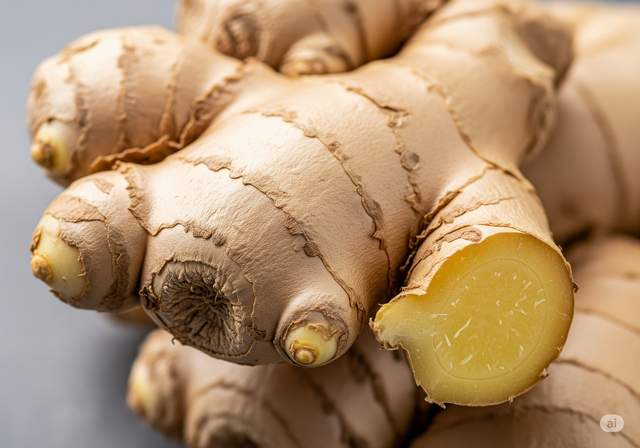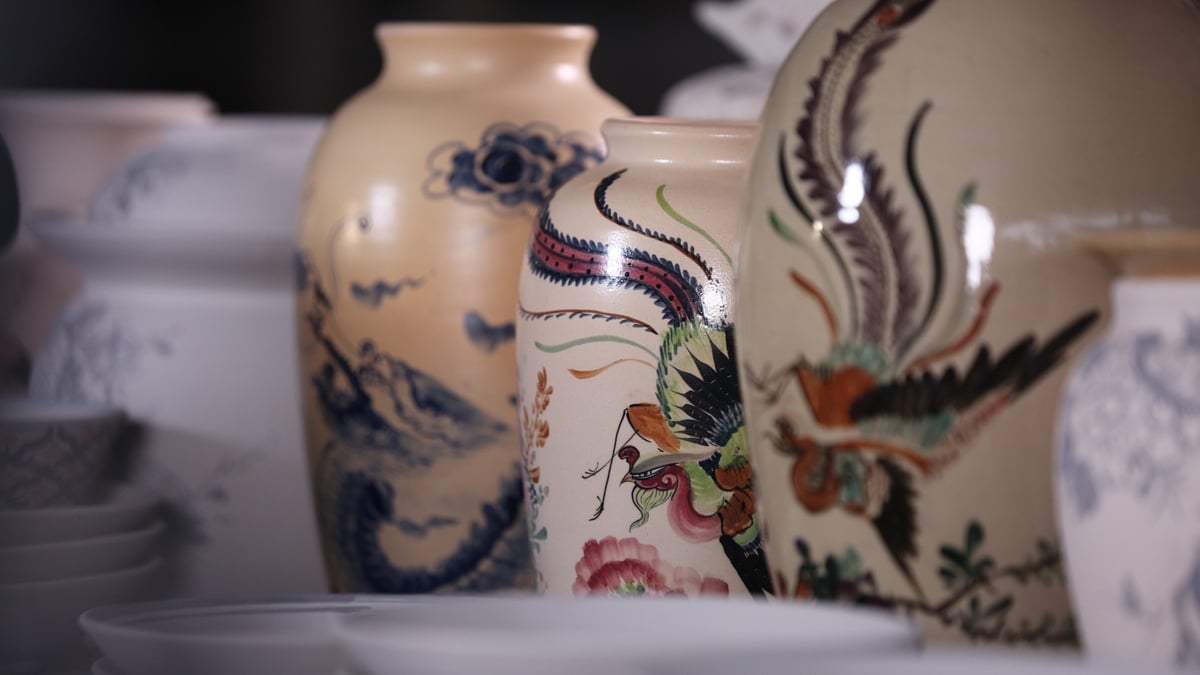Ginger has long been used in traditional medicine to treat digestive disorders and inflammation. The bioactive compounds in ginger such as gingerol and shogaol are responsible for its characteristic flavor and biological effects.
Now, researchers from Burrell School of Medicine and Mercer University (USA) want to better determine the actual clinical effects of ginger.
They synthesized and evaluated five meta-analyses conducted between 2010 and March 2025, focusing on the effects of ginger on type 2 diabetes and three other aspects, including inflammation, oxidative stress, and nausea during pregnancy.

Ginger has long been used to treat digestive disorders and inflammation.
Photo: AI
Ginger significantly reduces fasting blood glucose
The results found that ginger has a strong, clear effect in supporting blood sugar control in people with type 2 diabetes, according to the medical news site News Medical.
Specifically: Ginger significantly reduces fasting blood glucose and average HbA1c blood sugar levels in type 2 diabetic patients.
These findings are consistent with previous studies in animal models showing that ginger intake improves glucose tolerance and reduces fasting blood sugar in diabetes.
And the hypoglycemic effect of ginger is through several different mechanisms.
The basic mechanism involves inhibition of key enzymes involved in the digestion and absorption of complex carbohydrates.
In addition, 6-Gingerol, a component of ginger, showed strong activity in stimulating glucose metabolism and protecting pancreatic β cells.
Ginger extract can also enhance the expression of a glucose transporter, thereby promoting glucose uptake in adipocytes and skeletal muscle cells.
The reduction in HbA1c blood sugar levels suggests a potential long-term hypoglycemic effect of ginger, according to News Medical.
Additionally, results also showed that ginger has anti-inflammatory, antioxidant, and nausea-reducing effects during pregnancy.
The authors concluded: This systematic review confirms that ginger is a safe and potential natural therapy in the treatment of type 2 diabetes, anti-inflammation, oxidative stress reduction, and nausea during pregnancy.
Although the results are promising, experts recommend that more large-scale studies are needed to determine the appropriate dosage, form of administration, and patient population. Ginger is not a substitute for medical treatment, but can play an effective supporting role in comprehensive health care.
Source: https://thanhnien.vn/gung-va-benh-tieu-duong-nghien-cuu-moi-he-lo-bat-ngo-185250818162255387.htm

























![[Photo] Prime Minister Pham Minh Chinh attends the opening ceremony of the National Data Center](https://vphoto.vietnam.vn/thumb/1200x675/vietnam/resource/IMAGE/2025/8/18/b5724a9c982b429790fdbd2438a0db44)




![[Photo] Close-up of the first International Financial Center building in Ho Chi Minh City](https://vphoto.vietnam.vn/thumb/1200x675/vietnam/resource/IMAGE/2025/8/19/3f06082e1b534742a13b7029b76c69b6)
![[Photo] General Secretary To Lam and President Luong Cuong attend the handover ceremony of the Presidential Office Headquarters](https://vphoto.vietnam.vn/thumb/1200x675/vietnam/resource/IMAGE/2025/8/19/a37cfcbd301e491990dec9b99eda1c99)







































































Comment (0)